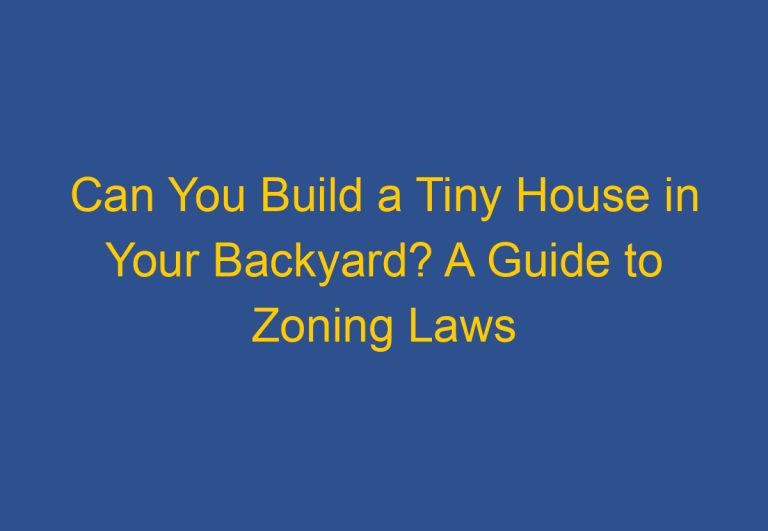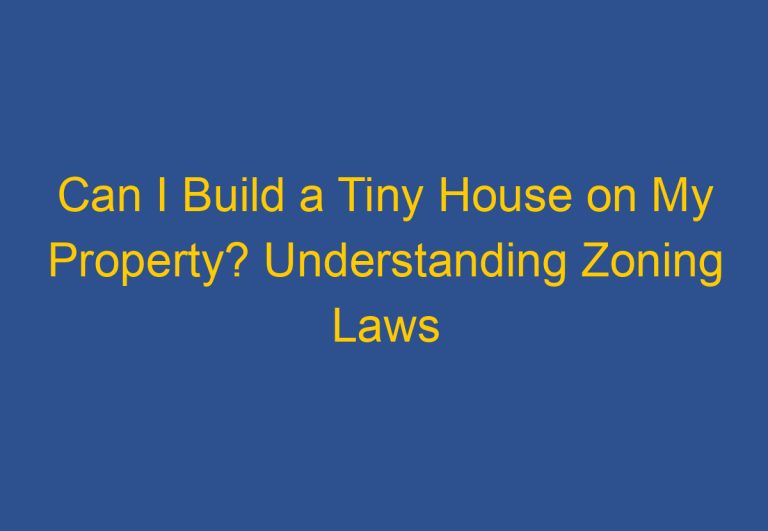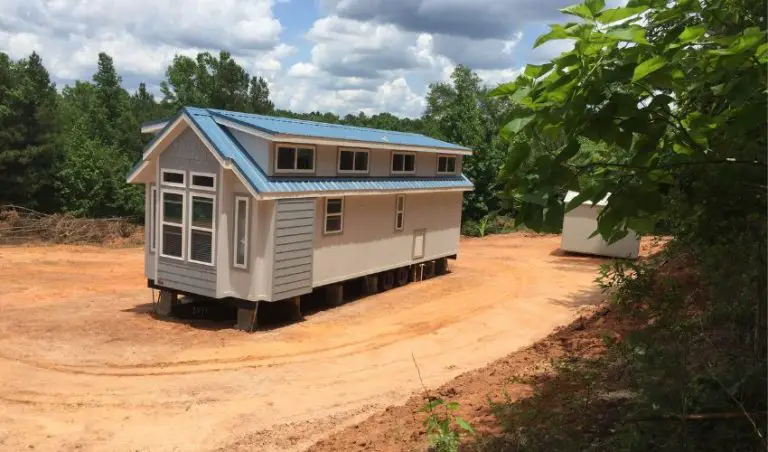Are Tiny Houses Legal in Vermont? Exploring Vermont’s Laws on Tiny Homes
Tiny houses have become increasingly popular in recent years as a way to downsize and live a more minimalist lifestyle. However, many people wonder about the legality of tiny houses in their area. In Vermont, tiny houses are legal, but there are rules and regulations that must be followed.

The size of a tiny house in Vermont can vary depending on the city, town, or county. Generally, tiny houses must be at least 100 square feet but no more than 1,000 square feet. It is important to check with local government before building a tiny house, as some cities and towns may have different limits. Additionally, tiny houses must comply with the Vermont Building Code and local zoning regulations, and must be securely anchored with a strong roof.
Despite the rules and regulations, Vermont is considered to have some of the most relaxed laws regarding tiny houses in the country. There are even tiny house builders in Vermont who specialize in designing and constructing these unique homes. For those interested in living a minimalist lifestyle in a tiny house, Vermont may be a great place to call home.
Legality and Zoning Regulations

Statewide Laws and Local Zoning
In Vermont, tiny houses are legal, but they are subject to certain zoning regulations and building codes. While there are no statewide laws that specifically address tiny houses, local zoning regulations and land use regulations apply. Most Vermont counties allow tiny houses, but they must meet local zoning regulations and building codes before they are allowed. Some counties also restrict the size of tiny homes that you can build. Generally, a tiny home should be no more than 1,000 square feet and properly anchored to the ground.
Building Codes and Safety Standards
Tiny houses must also comply with Vermont building codes and safety standards. The Vermont Building Code regulates the construction, alteration, and repair of buildings and structures. The code includes provisions for plumbing, electrical, and mechanical systems, as well as fire safety and accessibility. To ensure the safety of the occupants, tiny houses must meet these requirements.
Tiny Houses on Wheels vs. Foundation
Vermont distinguishes between tiny houses on wheels and those on a foundation. Tiny houses on wheels are considered recreational vehicles and are subject to the same regulations as other RVs. They must be registered with the Department of Motor Vehicles and comply with all applicable safety standards. However, they are not allowed as permanent residences in most areas of Vermont.
Tiny houses on a foundation are subject to local zoning regulations and building codes. They must be built to the same standards as other single-family homes. The size and specifications of the tiny house must meet the requirements of the local building codes and zoning regulations.
In conclusion, while Vermont has some of the most relaxed tiny house rules and regulations in the country, they are still subject to local building codes and zoning restrictions. It is important to know the rules and requirements for your project before you begin construction.
Living in a Tiny House in Vermont

Utilities and Infrastructure
When it comes to living in a tiny house in Vermont, one of the first things to consider is utilities and infrastructure. Many tiny homes are designed to be off-grid, which means they rely on alternative energy sources like solar panels or wind turbines. However, not all tiny homes are off-grid, and those that are not will need to be connected to the local power grid.
In addition to electricity, tiny homes in Vermont will also require a reliable source of water and a septic system. Some tiny home communities may offer communal water and septic systems, while others may require each home to have its own system.
Community and Lifestyle
Living in a tiny house in Vermont can offer a unique sense of community and lifestyle. There are several tiny home communities throughout the state, where residents can enjoy the benefits of shared resources and a tight-knit community. These communities often promote sustainable living and a minimalist lifestyle.
For those who prefer to live independently, there are also many options for individual tiny home living. Vermont’s rural landscape provides ample opportunities for off-grid living and sustainable housing options.
Financial and Insurance Considerations
Financing and insurance can be a challenge for those looking to live in a tiny house in Vermont. Traditional lenders may be hesitant to finance a tiny home, and insurance companies may not offer coverage for these unique dwellings.
However, there are alternatives. Some tiny home builders offer financing options, and there are also specialized lenders that cater to the tiny house market. As for insurance, there are companies that offer coverage specifically for tiny homes.
Overall, living in a tiny house in Vermont can offer a unique and sustainable housing option for those looking for affordable and minimalist living. While there are challenges to overcome, with careful planning and research, it can be a rewarding and fulfilling lifestyle choice.
Frequently Asked Questions

What zoning regulations affect tiny house construction and placement in Vermont?
Zoning regulations vary from county to county, town to town, and city to city in Vermont. Generally, tiny houses should comply with local zoning regulations, which may include minimum square footage requirements, setback requirements, and other restrictions. It is important to check with local government officials to ensure that the tiny house complies with all applicable zoning regulations.
Can tiny houses be legally used as permanent residences in Vermont?
Yes, tiny houses can be used as permanent residences in Vermont. However, they must meet the same regulations and standards as permanent dwellings for full-time living. Tiny houses must comply with building codes, zoning laws, and health and safety requirements outlined in the Vermont Building Code (VBC).
Are there specific building codes for tiny houses in Vermont?
There are no specific building codes for tiny houses in Vermont. However, tiny houses must comply with the same building codes as traditional homes. The Vermont Building Code (VBC) outlines the requirements for construction, plumbing, electrical, and other systems in all types of dwellings, including tiny houses.
What are the requirements for legally residing in a tiny house community in Vermont?
The requirements for legally residing in a tiny house community in Vermont vary depending on the community. Some communities may require that the tiny house be built to certain specifications, while others may require that the owner of the tiny house lease the land on which it is located. It is important to check with the community’s governing body to ensure compliance with all applicable regulations.
How does the cost of building a tiny house in Vermont compare to traditional homes?
The cost of building a tiny house in Vermont can vary widely depending on the size, materials, and finishes used. However, in general, building a tiny house can be less expensive than building a traditional home. Tiny houses require less materials and labor, and can often be built on a smaller piece of land.
What are the legal distinctions between tiny houses on wheels and foundation in Vermont?
In Vermont, tiny houses on wheels are considered recreational vehicles and are subject to different regulations than tiny houses on a foundation. Tiny houses on wheels are subject to the same regulations as other recreational vehicles, including registration and insurance requirements. Tiny houses on a foundation must comply with building codes and zoning regulations for permanent dwellings.






